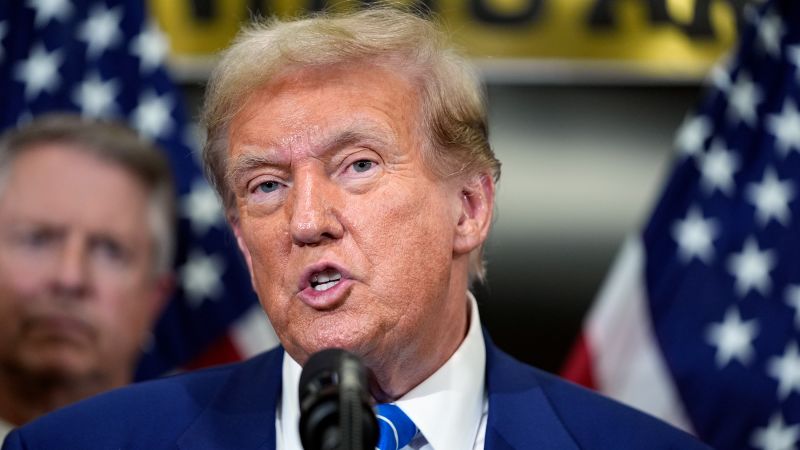Former President Donald Trump recently met with some of America’s top business leaders and expressed his plan to once again cut corporate taxes. Specifically, he is looking to reduce the corporate tax rate to 20%, down from the current 21%. This move is in line with Trump’s previous statements about extending the 2017 Tax Cuts and Jobs Act, a key achievement during his time in office. The tax cuts, which have been criticized by Democrats, are set to expire at the end of 2025, and extending them could come with a hefty cost of $4.6 trillion, according to the Congressional Budget Office. A further reduction in the corporate tax rate could further add to this cost.
The meeting took place in Washington, where Trump was meeting with CEOs as part of the Business Roundtable lobbying group. Trump’s reasoning behind wanting to reduce the corporate tax rate to 20% is that it’s a round number and he believes it would ultimately lead to job creation by making the United States more competitive on the global stage. The source familiar with the matter also revealed that Trump made these comments during the meeting and that he sees cutting corporate taxes as a way to boost the economy and create more opportunities for businesses in the country. Trump’s campaign has not yet responded to CNN’s request for a comment on this matter.
This move by Trump follows his previous promises to prioritize extending the tax cuts if he were to serve a second term, making it clear that tax policy remains a key focus for him. Reports about Trump’s comments on tax cuts have surfaced in various media outlets, including The New York Times. Trump’s push to lower corporate taxes is likely to face opposition from Democrats, who have been critical of Trump’s tax policies in the past. However, Trump’s supporters and some business leaders may see this as a positive step towards stimulating economic growth in the country.
The potential implications of Trump’s proposed corporate tax cut are significant, as it could have a major impact on government revenue and spending. With the cost of extending the tax cuts estimated to be $4.6 trillion, any further reduction in the corporate tax rate would only add to this cost. Critics argue that such tax cuts primarily benefit large corporations and the wealthy, while doing little to help working-class Americans. On the other hand, supporters of the tax cuts believe that they stimulate investment, job creation, and economic growth.
Ultimately, the decision to cut corporate taxes will require careful consideration of the potential benefits and drawbacks. While Trump sees this as a way to boost job creation and make the US more competitive globally, others may question the wisdom of further reducing government revenue at a time when the country is facing economic challenges. The debate over tax policy will continue to be a contentious issue, with politicians, economists, and business leaders weighing in on the best path forward for the country’s economic recovery and growth. Trump’s plan to cut corporate taxes is just one piece of the puzzle in his overall economic policy agenda and will likely be met with scrutiny and debate in the coming months.


